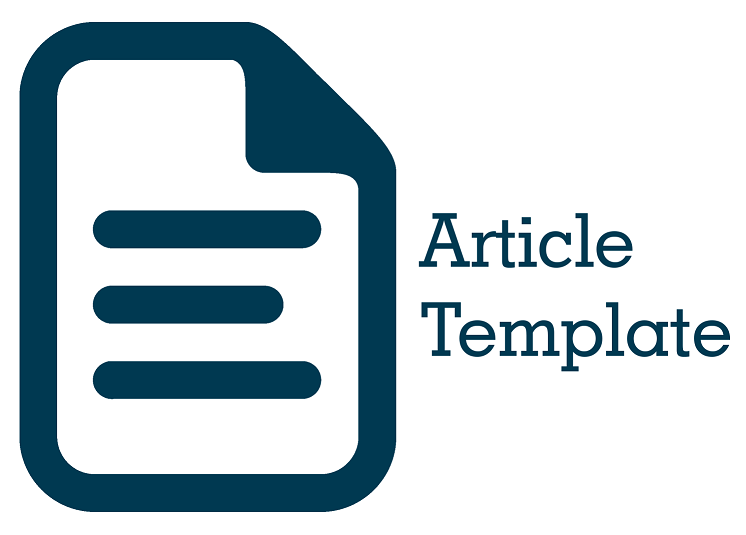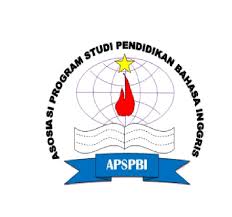Exploring EFL Students’ Perceptions of Reading Habits in English Academic Reading: A Case of a Cambodian Private School
DOI:
https://doi.org/10.22515/elereviews.v3i2.7542Keywords:
academic reading, reading habits, reading strategies, students’ perceptionsAbstract
Reading is one of the most essential skills to open up a world of knowledge, comprehension, and amusement. Despite increasing global interest, there has been little research on reading habits and academic performance in Cambodia. This study examines the English as a Foreign Language (EFL) students’ perceptions of reading habits in English academic reading. The study employed a qualitative approach, in which seven participants were selected for interviews using 18 questions to explore their perceptions of reading practices. The findings revealed that the EFL students had positive perceptions of reading habits and self-reported that it helped them improve their English proficiency in general. Furthermore, it also highlighted the importance of reading habits in enhancing students’ English academic reading. However, it is pivotal for educators to provide guidance and support to their students in the process of reading practices to improve their English academic reading achievements. Future researchers are recommended to conduct a study that comprehensively investigates the association between reading habits and academic achievements, employing quantitative and/or mixed methods in multiple schools.
Downloads
References
Abid, N., Aslam, S., Alghamdi, A. A., & Kumar, T. (2023). Relationships among students’ reading habits, study skills, and academic achievement in English at the secondary level. Frontiers in Psychology, 14. https://doi.org/10.3389/fpsyg.2023.1020269
Ahmadi, M. R. (2017). The impact of motivation on reading comprehension. International Journal of Research in English Education, 2(1), 1-7. http://ijreeonline.com/files/site1/user_files_68bcd6/admin-A-10-1-9-13b10a6.pdf
Akanda, A. K. M., Hoq, K. M. G., & Hasan, N. (2013). Reading habit of students in social sciences and arts: A case study of Rajshahi University. Chinese Librarianship, (35). https://white-clouds.com/iclc/cliej/cl35AHH.pdf
Alahirsh, H. (2014). Exploring the effectiveness of extensive reading on incidental vocabulary acquisition by EFL learners: An experimental case study in a Libyan University, (Unpublished PhD thesis). University of Nottingham.
Alsaif, A., & Masrai, A. (2019). Extensive reading and incidental vocabulary acquisition: The case of a predominant language classroom input. International Journal of Education and Literacy Studies, 7(2), 39-45. http://dx.doi.org/10.7575/aiac.ijels.v.7n.2p.39
Anwar, I. W., & Sailuddin, S. P. (2022). Academic reading difficulties in higher education. Journal of Languages and Language Teaching, 10(2), 309-314. https://doi.org/10.33394/jollt.v10i2.4849
Baker, W., & Boonkit, K. (2004). Learning strategies in reading and writing: EAP contexts. RELC Journal, 35(3), 299-328. https://doi.org/ 10.1177/0033688205052143
Bashir, I., & Mattoo, N. H. (2012). A study-on-study habits and academic performance among adolescents (14-19) years. International Journal of Social Science Tomorrow, 1(5), 1-5.
Beale, G., & Reilly, P. (2017). Digital practice as meaning making in archaeology. Internet Archaeology, (44). https://doi.org/10.11141/ia.44.13
Benwari, N. N., & Nemine, E. B. B. (2014). Intensive reading as a study habit and students’ academic achievement in economics in selected secondary schools in Bayelsa State, Nigeria. Journal of Curriculum and Teaching, 3(2), 94-99. http://dx.doi.org/10.5430/jct.v3n2p94
Biernacki, P., & Waldorf, D. (1981). Snowball sampling: Problems and techniques of chain referral sampling. Sociological Methods & Research, 10(2), 141-163. http://ftp.columbia.edu/itc/hs/pubhealth/p8462/misc/biernacki_lect4.pdf
Birketveit, A., Rimmereide, H. E., Bader, M., & Fisher, L. (2018). Extensive reading in primary school EFL. http://dx.doi.org/10.5617/adno.5643
Bråten, I., & Braasch, J. L. (2017). Key issues in research on students’ critical reading and learning in the 21st century information society. In improving reading and reading engagement in the 21st century (pp. 77-98). Springer, Singapore. https://link.springer.com/chapter/10.1007/978-981-10-4331-4_4
Chettri, K. N., & Rout, M. K. (2013). Reading habits and their impact on students’ academic performance: A study of secondary school students in Nepal. International Journal of Educational Research and Technology, 4(1), 68-75.
Cho, B.-Y., & Afflerbach, P. (2017). An evolving perspective of constructively responsive reading comprehension strategies in multilayered digital text environments. In S. E. Israel (Ed.), Handbook of Research on Reading Comprehension (pp. 109–134). The Guilford Press. https://psycnet.apa.org/record/2016-60476-006
Chotitham, S., and Wongwanich, S. (2014). The reading attitude measurement for enhancing elementary school students’ achievement. Procedia Soc. Behav. Sci. 116, 3213–3217. https://doi.org/10.1016/j.sbspro.2014.01.737
Dardjito, H., Rolls, N., Setiawan, A., & Sumekto, D. R. (2023). Challenges in reading English academic texts for non-English major students of an Indonesian university. Studies in English Language and Education, 10(3), 1290-1309. https://doi.org/10.24815/siele.v10i3.29067
Denscombe, M. (2021). The good research guide: Research methods for small-scale social research (7th ed.). Open University Press. https://ebookcentral.proquest.com/lib/hud/reader.action?docID=6888276
Droop, M., & Verhoeven, L. (2003). Language proficiency and reading ability in first‐and second‐language learners. Reading Research Quarterly, 38(1), 78-103. https://doi.org/10.1598/RRQ.38.1.4
Ellis, S., & Van Staden, L. J. (2017). Some variables influencing academic achievement: Reading, motivation, learning strategies, learning approaches. Journal of Educational Studies, 16(2), 113-131. https://journals.co.za/doi/epdf/10.10520/EJC-f89606fdd
Eriksson, L. (2023). “Gruelling to read”: Swedish university students’ perceptions of and attitudes towards academic reading in English. Journal of English for Academic Purposes, 101265. https://doi.org/10.1016/j.jeap.2023.101265
Fatiloro, O. F., Adesola, O. A., Hameed, B. A., & Adewumi, O. M. (2017). A survey on the reading habits among colleges of education students in the information age. Journal of Education and Practice, 8(8), 106-110. https://files.eric.ed.gov/fulltext/EJ1139158.pdf
Gibbs, G. R. (2018). Analyzing qualitative data (Vol. 6). Sage. https://www.betterevaluation.org/sites/default/files/Thematic_coding_and_categorizing.pdf
Grellet, F. (1996). Writing for advanced learners of English. Cambridge University Press.
Holte, M. S. (1998). Creating an optimum reading culture in the low countries: The role of stichting lezen. 64th IFLA General Conference. https://origin-archive.ifla.org/IV/ifla64/098-80e.htm
Jemide, W. I. (2001). Attitudes to student educational advancement. Ibadan: Dolan Publishers.
Li, S., & Munby, H. (1996). Metacognitive strategies in second language academic reading: A qualitative investigation. English for Specific Purposes, 15, 199-216. https://doi.org/10.1016/0889-4906(96)00004-X
Mason, B., & Krashen, S. (1997). Extensive reading in English as a foreign language. System, 25(1), 91-102. https://doi.org/10.1016/S0346-251X(96)00063-2
Mermelstein, A. D. (2015). Improving EFL learners’ writing through enhanced extensive reading. Reading in a Foreign Language, 27(2), 181–196. https://files.eric.ed.gov/fulltext/EJ1078420.pdf
Mo, A. (2021). Improving 9th grade EFL students’ reading speed through an enhanced extensive reading methodology. The Asia-Pacific Education Researcher, 30(2), 109-117. https://doi.org/10.1007/s40299-020-00518-w
Nordin, R., & Eng, L. S. (2017). Text-selection for teaching reading to ESL tertiary students: A study on genre and content preferences. International Journal of Instruction, 10(1), 71-84. https://www.e-iji.net/dosyalar/iji_2017_1_5.pdf
Nuttall, C. (1996). Teaching reading skills in a foreign language. ERIC. https://eric.ed.gov/?id=ED399531
Owusu-Acheaw, M., & Larson, A. G. (2014). Reading habits among students and its effect on academic performance: A study of students of Koforidua Polytechnic. Library philosophy and Practice, 0_1. https://www.proquest.com/publiccontent/docview/1738006233/fulltextPDF/9A42BB4BF8D34EB4PQ/1?accountid=11526
Pflaum, S. W., & Bishop, P. A. (2004). Student perceptions of reading engagement: Learning from the learners. Journal of Adolescent & Adult Literacy, 48(3), 202-213. https://doi.org/10.1598/JAAL.48.3.2
Rahman, K. (2020). EFL undergraduates’ journal article reading strategies. El-Tsaqafah: Jurnal Jurusan PBA, 19(1), 88-96. https://doi.org/10.20414/tsaqafah.v19i1.2346
Rashid, Y., Rashid, A., Warraich, M. A., Sabir, S. S., & Waseem, A. (2019). Case study method: A step-by-step guide for business researchers. International Journal of Qualitative Methods, 18, 1609406919862424. https://journals.sagepub.com/doi/pdf/10.1177/1609406919862424
Skenderi, L., & Ejupi, S. (2017). The reading habits of university students in Macedonia. Conference Paper of the 15th International Conference “Knowledge in Practice”. http://ikm.mk/ojs/index.php/kij/article/view/3966
Sohail, S. (2015). Academic reading strategies used by Leeds Metropolitan University graduates: A case study. Journal of Education and Educational Development, 2(2), 115-133. https://files.eric.ed.gov/fulltext/EJ1161457.pdf
Sokhet, S. U. N. (2018). Reading habits and academic performance: A study of university students in Cambodia. UC Occasional Paper Series, 3(1). https://uc.edu.kh/Occasional_Paper_Series/1.%20Reading%20Habits%20and%20Academic%20Perfomance%20A%20study%20of%20University%20Students%20in%20Cambodia.Sokhet%20Sun.pdf
Tella, A., & Akande, S. O. (2007). Children reading habits and availability of books in Botswana primary schools: Implications for achieving quality education. The Reading Matrix, 7(2), 117-142. https://eric.ed.gov/?id=EJ1066611
Williams, A. B. (1984). Shrimps, lobsters, and crabs of the Atlantic coast of the eastern United States, Maine to Florida. Smithsonian Inst Pr.
Xie, X., Huo, J., & Zou, H. (2019). Green process innovation, green product innovation, and corporate financial performance: A content analysis method. Journal of Business Research, 101, 697-706. https://doi.org/10.1016/j.jbusres.2019.01.010
Yuill, N., Oakhill, J., & Parkin, A. (1989). Working memory, comprehension ability and the resolution of text anomaly. British Journal of Psychology, 80(3), 351-361. https://doi.org/10.1111/j.2044-8295.1989.tb02325.x
Zhang, X. Y. (2022). A Study on EFL graduate students’ academic English reading strategies. Open Journal of Modern Linguistics, 12, 799-812. https://doi.org/10.4236/ojml.2022.126055
Downloads
Published
How to Cite
Issue
Section
Citation Check
License
Copyright (c) 2023 Piseth Sum , Sarin Sok , Sina Pang

This work is licensed under a Creative Commons Attribution-NonCommercial 4.0 International License.
Authors retain copyright and grant the journal right of first publication with the work simultaneously licensed under a Creative Commons Attribution License that allows others to share the work with an acknowledgement of the work's authorship and initial publication in this journal.
This ejournal system and its contents are licensed under
a Creative Commons Attribution-NonCommercial 4.0 International License








